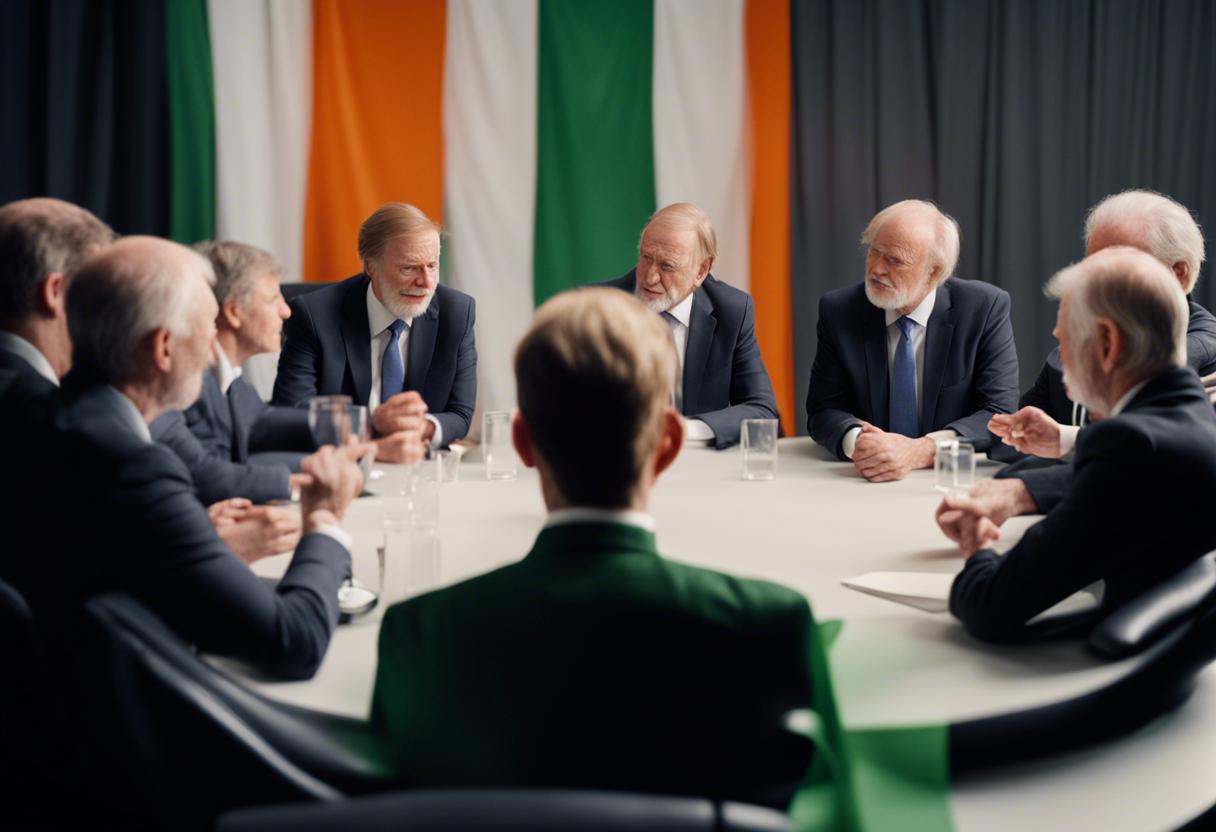For more than 17 years, Leo Varadkar has been a prominent figure in the Dáil chamber, serving even as a former taoiseach. His recent announcement confirming his upcoming departure from politics in the forthcoming general election came as no surprise to many. Varadkar’s unexpected resignation from the taoiseach office and leadership position in Fine Gael in March was a startling political development that caught his party members, the Coalition partners, the Opposition, and the public off guard.
The act of relinquishing the influential taoiseach position raises questions as it’s generally perceived as the apex of political careers. However, his decision was more complex than it appears. Understanding the evolving intricacies of present-day politics, Varadkar discerned a souring opinion of his leadership amongst voters. He realised the necessity of a significant reform to prevent a possible debacle in the local and European elections. The impending elections inexorably honed this viewpoint.
Contrastingly, a different scenario evolved in the United States where President Joe Biden continues to maintain a tight grip on his position, still harboring aspirations of retaining his role as the Democratic presidential candidate. Despite robustly claiming physical and cognitive fitness, his faltering performance during the televised Atlanta debate eradicated his defence and disrupted his campaign at a crucial historical juncture, with the ever-present threat of Donald Trump regaining power. Post-debate, Biden stumbled further when he inaccurately referred to Ukraine’s President Volodymyr Zelenskiy as Russia’s President Vladimir Putin during a NATO summit. Additionally, he made an erroneous reference to Vice President Harris as “Vice President Trump” during a press conference.
Since that definitive debate, there has been an escalating clamour amongst Democrats for his resignation. Numerous figures, inclusive of ex-House Speaker Nancy Pelosi, reportedly warned Biden that his continued presence in the race would jeopardise the Democrats’ chances in the November House elections. Despite public pressure from his own party, Biden responded with what can only be characterised as arrogance. During an interview with ABC’s George Stephanopoulos regarding potential cognitive tests, he stated, “You know, I’m not just campaigning. I’m also running the world.” He further declared at a press conference, “I believe I’m the most competent to rule. And I think I’m the most competent to succeed.” This has cost crucial time and ground. As Taylor Swift quasi stated, it’s important to know when to depart.
The situation in America illustrates that avoiding the truth can have significant global political implications. The same is relevant at home. While Fine Gael accurately anticipated the outcome of the most recent elections, it is now Sinn Féin that is dealing with the aftermath of a calamitous local election campaign in which the party came third, securing less than 12% of the votes. However, their European election campaign showed some promise.
In addition to establishing clear refugee policies, Sinn Féin also needs to enhance its election machinery and support for candidates as there are internal criticisms. The party needs to determine whether to reinforce its message of change, modify it or discard it completely.
After performing an internal audit, party leadership member Mary Lou McDonald openly shared the findings, without sugar-coating the results. McDonald acknowledged that Sinn Féin had generally “lost trust” and had made mistakes in relation to family and care referendums.
Furthermore, McDonald admitted that prominent Sinn Féin members were “disheartened” with her interaction with the party’s grassroots, with members wishing for her to be her “genuine and authentic self”. The party also wishes for her to provide clearer policy positions and increased availability. There have been critiques that in some broadcast interviews prior to the local and European elections, McDonald appeared unclear on certain policies.
Discussing immigration, Sinn Féin was criticised for not accurately representing the majority of people’s views, as she stated. The party is scheduled to introduce a new series of immigration policies on Tuesday, presumably focusing on international safeguarding. The objective is to deliver a more distinct proposal to voters. However, how significantly will these differ from the existing governmental policies? Will merely redefining or improving current approaches be sufficient to regain the trust of disenfranchised or undecided voters with potentially as few as 16 weeks left until a general election?
It’s clear that the foundation of the forthcoming general election is already set. The Coalition parties will strive to justify their past performance, while Sinn Féin will underscore the deficit or inadequacies in areas such as housing and healthcare. The impending election is likely to be characterised by a fear of uncertainty versus a fear of continuity. Sinn Féin must additionally refine its door-to-door campaigning tactics and candidate backing structure in the face of internal disapproval. The party must determine whether to reinforce, modify or discard its message of change.
Sinn Féin has the opportunity to reveal a strategy demonstrating its first 100 days in Government, an action which may assist voters to conceptualise what this so-called change would mean in practice. Furthermore, the notion of identity is paramount: there are numerous grassroots members who wish Sinn Féin to return to its basic principles and assert its republican credentials. They also call for the party heads to retrieve votes lost in certain working-class sectors. Following this, important choices about imminent candidate appointment conferences need to be made. In the previous general election, Sinn Féin was reproached for selecting too few candidates. On the other hand, in the recent local elections last June, the allegation was that it fielded too many. For Sinn Féin, correctly gauging public sentiment has never been more crucial.

